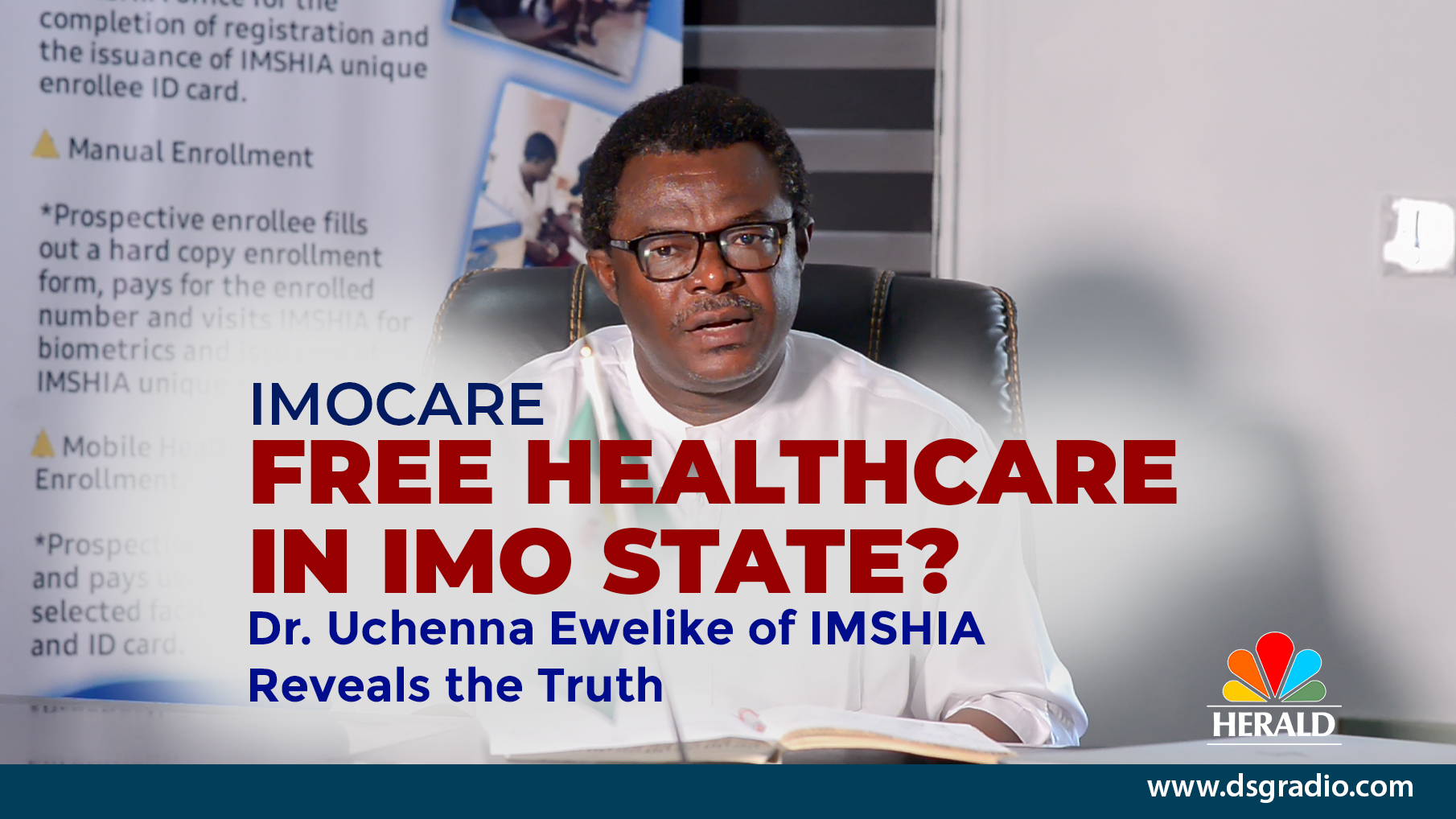Irete, Owerri West LGA – In a historic move toward improving Basic Primary Education in Imo State, the people of Irete Community in Owerri West LGA officially launched the Irete Community Primary School Revamp Project with a colorful groundbreaking and kickoff ceremony held at the school premises. The Irete Community Primary School Revamp Project stands as a beacon of what communities can achieve when unity, vision, and action meet. It is a powerful testament to the growing movement to improve Basic Primary Education and strengthen grassroots development in Imo State.
Imo Care: How Free Healthcare Is Changing Lives in Imo State
In the face of insecurity and economic hardship, Imo State is quietly redefining access to healthcare. At the center of this transformation is the Imo State Health Insurance Agency (IMSHIA), led by its Executive Secretary and CEO, Dr. Uchenna Ewelike. Through a people-focused initiative called Imo Care, the agency is delivering free healthcare services across all 27 Local Government Areas, touching lives in both rural and urban communities.
What started as a state policy has evolved into a full-blown movement—one that is saving lives, restoring trust, and bridging the gap between the underserved and access to essential medical care.
A Vision Rooted in Equity
Dr. Ewelike makes it clear: “Health is not a privilege—it’s a right. And Imo Care is about ensuring every resident can access care regardless of income, tribe, religion, or political affiliation.”
The Imo State Health Insurance Agency was originally established by law in 2018; however, its implementation began only about two and a half years ago. Since then, the agency has made tremendous progress. Over 2.7 million residents have been enrolled under the Imo Care program, and more than 438,000 medical cases have been successfully managed.
These numbers represent people—young mothers receiving emergency surgeries, pensioners getting checkups, and children being treated for illnesses their families once couldn’t afford to diagnose.
Reaching the Vulnerable with Imo Care
The primary goal of Imo Care is to provide free healthcare services to those who need them most. This includes rural communities, low-income families, and vulnerable populations like pregnant women and the elderly. According to Dr. Ekwelike, over 2,000 assisted deliveries have been recorded under the program, resulting in a significant reduction in maternal deaths in the state.
“We’ve trained healthcare providers across all LGAs to detect high-risk pregnancies early,” he explained. “If a woman in Ohaji needs an emergency C-section and can’t afford it, Imo Care steps in. This is how we save lives.”
One remarkable story involves a young woman who needed a C-section. She was initially billed ₦1.1 million. However, because she was enrolled under Imo Care, she only paid a ₦15,000 enrollment fee. The rest was covered by the state.
Financial Model: Shared Responsibility
While healthcare is never truly free, Imo Care operates on a hybrid funding model. For the informal sector, enrollees pay a modest ₦15,000 per year, while civil servants, pensioners, and the most vulnerable are enrolled at no cost to them. Their care is fully funded by the state government and the federal Basic Healthcare Provision Fund (BHCPF).
“We’ve done detailed actuarial analysis to ensure that ₦15,000 is enough to sustain the model,” Dr. Ekwelike said. “With this model, we guarantee access for the poor while enabling the middle class to contribute to the system’s sustainability.”
What’s remarkable is the level of public confidence the program has earned. Individuals in the diaspora, class groups, religious organizations, and village unions are enrolling hundreds of their members into Imo Care, seeing it as the most effective way to ensure their people receive reliable medical care.
Not Just Politics, But Public Service
Dr. Ekwelike emphasized the agency’s non-political stance. “Illness doesn’t recognize political parties,” he said. “Whether you’re PDP, APC, ADC, or LP—you get sick. And you deserve care.”
This principle has allowed the Imo State Health Insurance Agency to work in areas affected by insecurity. Even in volatile regions, the communities welcome IMSHIA teams because they understand the purpose: delivering healthcare, not politics.
The program is currently active in all 305 INEC electoral wards in Imo State. Each ward has at least one accredited healthcare provider offering services to enrollees.
Monitoring, Quality, and Accountability
To ensure high-quality service delivery, IMSHIA accredits both public and private facilities through a rigorous process. If a hospital or clinic fails to meet the agency’s standards, it is suspended or de-accredited, regardless of its ownership.
Each accredited facility displays a call center number that patients can contact immediately if they are denied service. This real-time feedback loop allows IMSHIA to intervene and correct problems swiftly.
One of the most compelling aspects of the Imo Care story is the significant impact on the lives of real people. Dr. Ewelike shared several emotional cases: a girl with kidney issues whose condition was stabilized through the scheme, a rural family that received life-saving surgery, and a widowed mother who now gets free prescriptions for her chronic illness.
“Health insurance is a trust-based service,” he explained. “People trust us because they’ve seen the results in their own lives and in their neighbors’ lives.”
Dr. Ewelike also shared how his team often doesn’t know the names or political affiliations of beneficiaries. “We only see people in need. That’s our mandate—to show up and help.”
Building a Sustainable Legacy
The success of Imo Care didn’t happen by accident. It required strong technical expertise, community engagement, and most importantly, political will.
Dr. Ewelike credited Governor Hope Uzodinma for giving IMSHIA the freedom and funding it needed to operate. “Without the governor’s support, we wouldn’t be here,” he said. “He understood early on that healthcare access was critical and gave us everything we needed to succeed.”
Today, every civil servant and pensioner in Imo State is enrolled in the scheme. The goal is to reach 50% population coverage before the end of the administration, and possibly more in the years to come.
Next Steps and Public Responsibility
While IMSHIA continues to enroll more residents, Dr. Ewelike believes communities also have a role to play. “Government provides the platform, but the people must spread the word,” he said. “When you enroll in Imo Care, you protect yourself and your loved ones.”
He urged community leaders, media platforms, and citizens to help raise awareness. “It’s not like a new road you can see immediately. But when someone survives an emergency because they had access to care—that’s when you see the power of health insurance.”
Conclusion
The Imo State Health Insurance Agency, through the Imo Care initiative, is leading one of the most ambitious health transformations in Nigeria. From its non-political stance to its bold outreach and impact-driven results, the agency is showing what is possible when government works for the people.
In a country where health outcomes often depend on wealth or connections, Imo Care is proving that equity in healthcare is not just an idea—it’s a reality, one life at a time.




